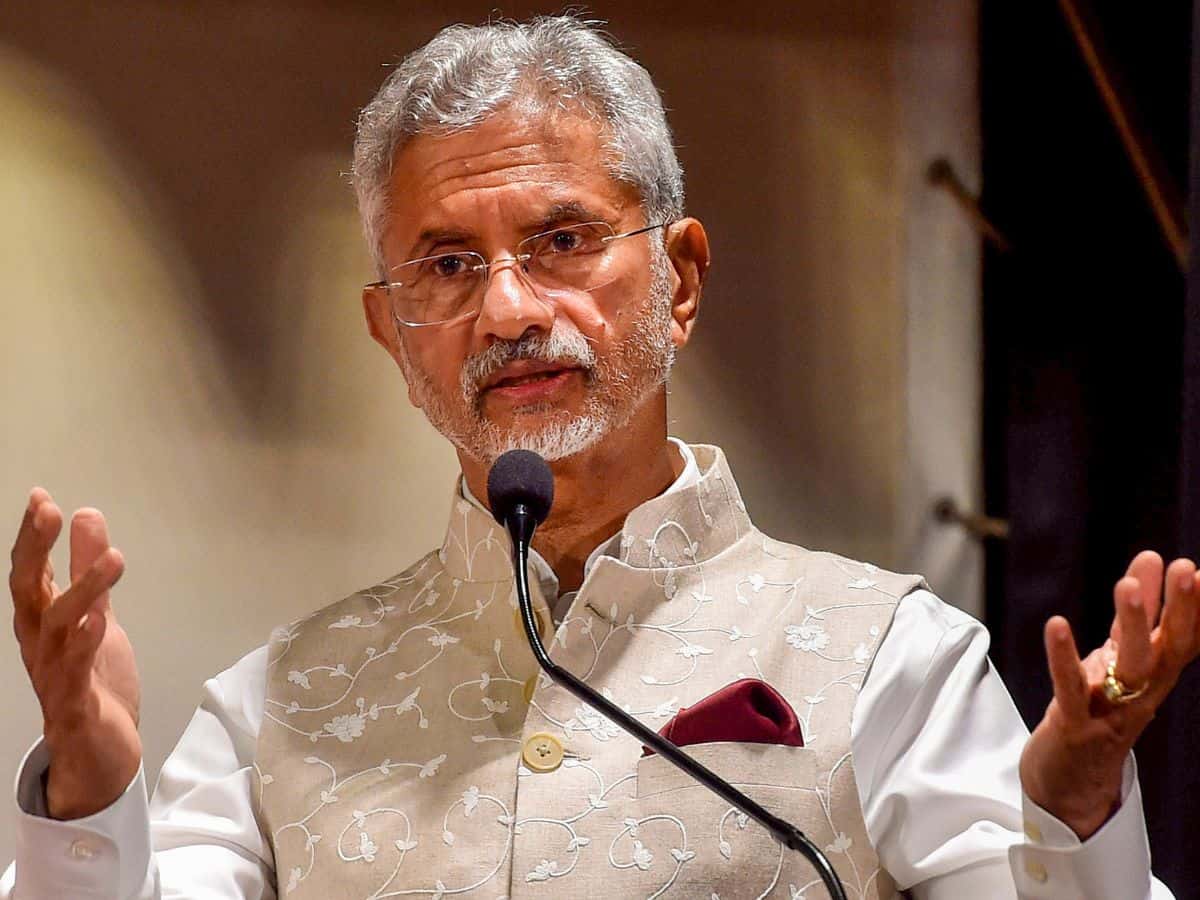
New Delhi: Indian businesses will have to use a “national security filter” in their dealing with China and they should focus more on sourcing from domestic manufacturers, External Affairs Minister S Jaishankar said on Friday, amid the lingering eastern Ladakh border row.
In an interactive session at an event hosted by the Confederation of Indian Industry (CII), Jaishankar said Indian firms should look at the national security sensitivities in their business propositions with China, but noted that it does not mean that nothing can be sourced from the neighbouring country.
“Where China is concerned, we will still encourage people in this country — manufacture in India, source in India, procure from India,” Jaishankar said, responding to a question.
“We have not completely and utterly prohibited people working with China but frankly, we would much rather you work with Indian companies if there is an Indian option available to you. That I think is good for our national security, we hope you think that it is good for your own business in the long term,” he said.
The external affairs minister underlined the need for using a “national security filter” in doing business with China.
To a specific query on the border row, he said, “Would you do business with somebody who has just barged into your drawing room and is trying to make a mess of your house fencing? You won’t. There is a common sense proposition there.”
In remarks seen as a reference to China, Jaishankar, in his address, flagged concerns over the “weaponisation” of economic activity and how access to raw materials or even stability of tourism are being utilised to exert political pressure.
“A different dimension of the concerns that we harbour is one emanating from a combination of excessive market shares, financial domination and technology tracking,” he said.
“Between them, they have actually allowed for the weaponisation of virtually any form of economic activity. We have seen how both exports and imports, access to raw materials or even stability of tourism has been utilised to exert political pressure,” he said.
Jaishankar said the current times call for something more than business as usual.
“Because trust and reliability have become so important, foreign policy is today charged with creating the comfort levels between governments to make that happen,” he said.
“This is especially so in terms of de-risking supply sources and enhancing collaboration in sensitive, critical and emerging technologies,” he added.
“You can already see that unfold with the US in terms of the iCET dialogue that we had and with the EU in the Trade and Technology Council,” Jaishankar said.
He said there is a need to recognise that India’s economic priorities will have to align with its strategic interests.
“An economy with India’s prospects also has to look at accessing global resources more seriously if we are to fuel our growth,” the minister said.
“For long, we have looked at Russia from a political or security perspective. As that country turns eastwards, fresh economic opportunities are presenting themselves,” he added.
“The spike in our trade and the new areas of cooperation should not be regarded as a temporary phenomenon,” Jaishankar said.
